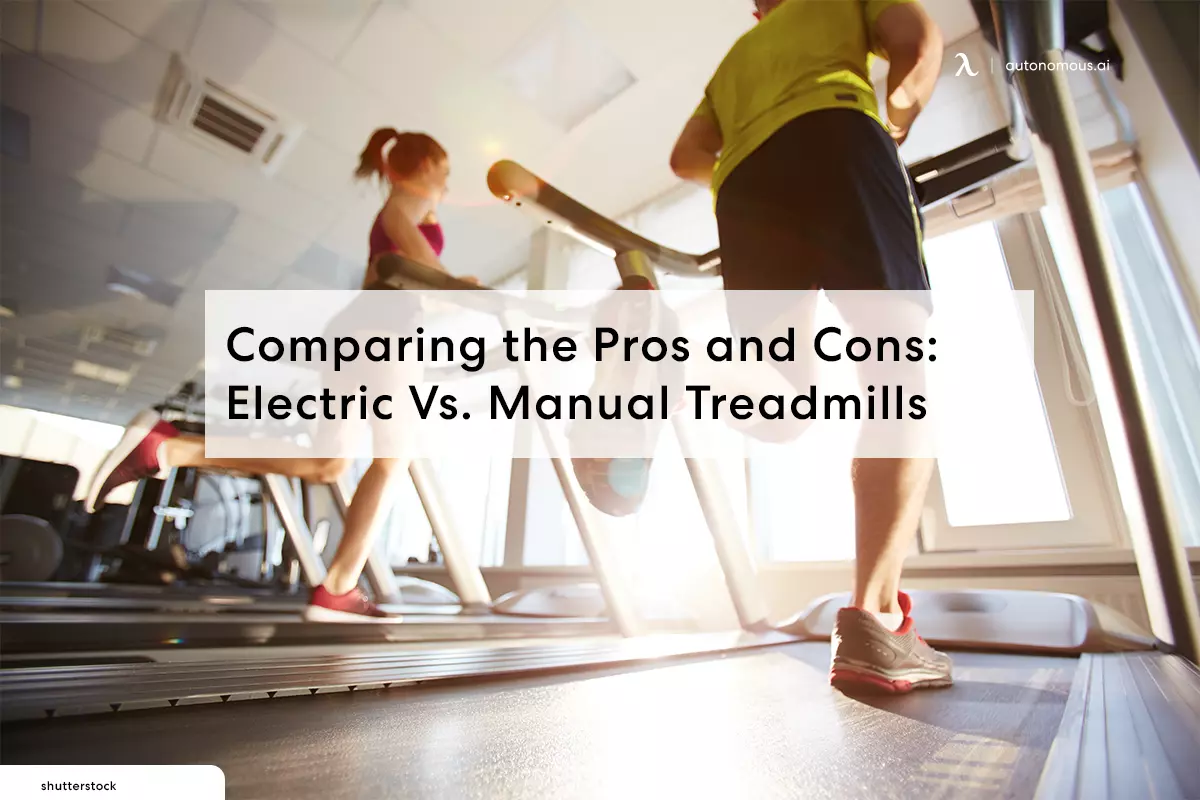
Comparing the Pros and Cons: Electric vs. Manual Treadmills
Treadmills are an essential piece of home gym equipment that provides a convenient and effective way to stay active. With technological advancements, two main types of treadmills have emerged in the market: electric and manual treadmills. Additionally, choosing the right type of treadmill for your fitness needs can be difficult, as each variety has its unique benefits and drawbacks.
We will explore the differences between electric vs. manual treadmills to help you make an informed decision. Whether you're looking to exercise at home or in your office, you'll find many options available, including a walkable treadmill or mini treadmills. By the end of this article, you'll better understand the differences between manual vs. electric treadmills and which one is right for you.
The Ultimate Guide to Understanding Electric Treadmills
An electric treadmill is a type of home gym equipment that runs on electricity. It is also known as a motorized or powered treadmill. This treadmill uses a motor to power the belt, which moves when you walk or run on it.
Furthermore, it has a control panel that allows you to adjust the speed and incline of the belt, making it easier to customize your workout and challenge yourself. Electric treadmills come in various sizes and designs, from compact and foldable models to more advanced and feature-rich options.
Some of these treadmills are designed for home gyms, while others are compact and lightweight, making them ideal for use in small apartments or as an office treadmill under the desk. Regardless of the design, electric treadmills offer a convenient and effective way to exercise in the comfort of your own home.

Unlocking the Secrets of Effortless Workouts: A Guide to Using an Electric Treadmill
Using an electric treadmill is a straightforward process that requires no manual effort. Once you have plugged the machine into an electrical outlet, you can control the speed and incline of the machine through buttons on the control panel.
The first step to using an electric treadmill is to set up the machine, which typically involves adjusting the deck height to your preferred level and making any other necessary adjustments, such as the incline. Afterward, you can step onto the walking treadmill base and begin walking or running at your desired pace.
Many electric treadmills come with preset workout programs, which you can select using the control panel. These programs typically control the speed and incline of the machine to mimic outdoor running terrain and provide a challenging workout.
Additionally, many motorized treadmills have heart rate monitors built into the handrails, which allow you to watch your heart rate during your workout.
Some also have built-in entertainment systems, such as a screen that displays workout data or the ability to connect to your smartphone or tablet to play music or watch videos. You can also find them as a standing desk with a treadmill.
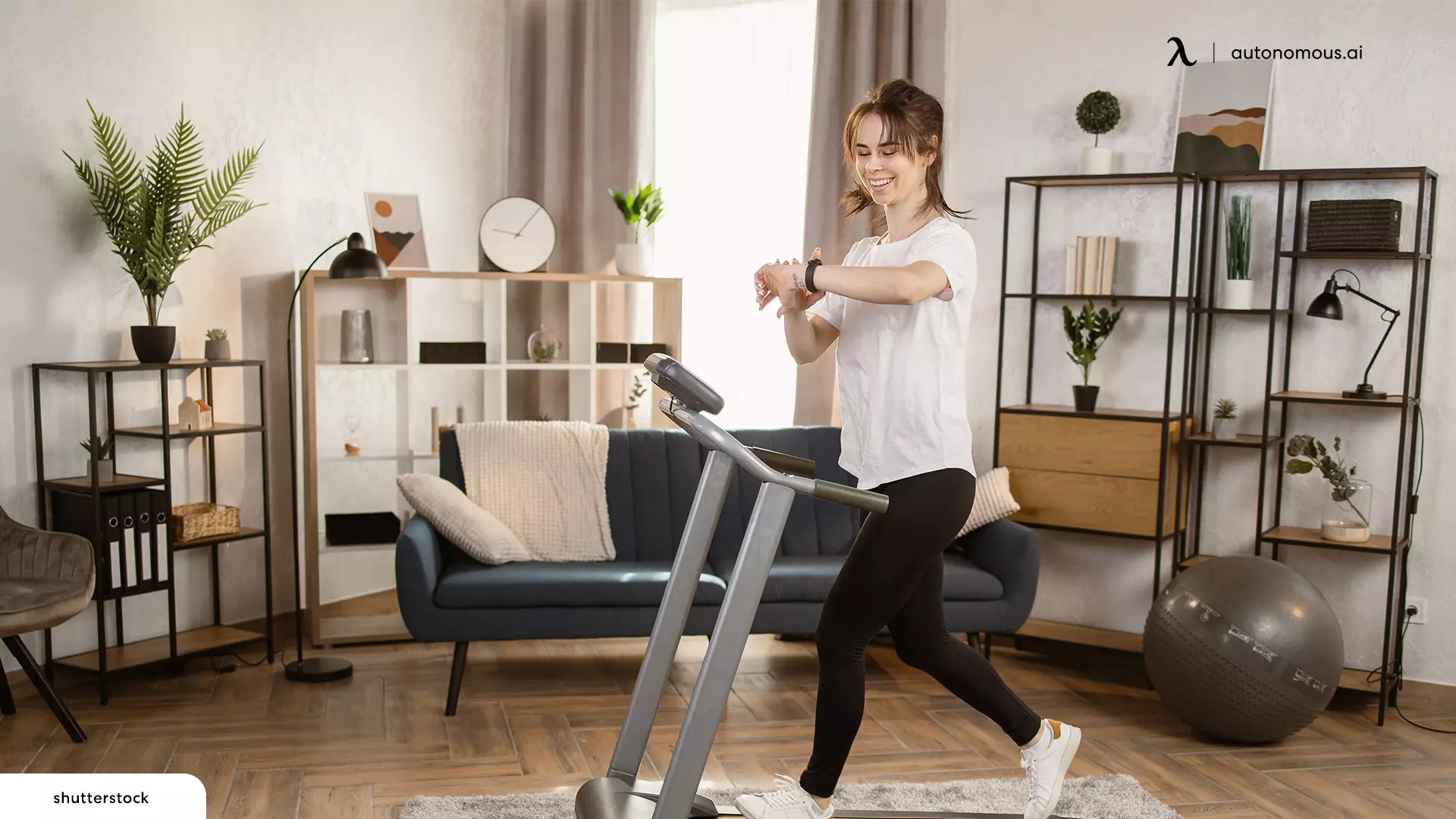
The Fundamentals of a Manual Treadmill
A manual treadmill is a piece of fitness equipment that doesn't require an electric motor to operate. Instead, it relies on the user's power to drive the belt and create movement. This type of treadmill is often lighter, more compact mini treadmills, and less expensive than electric treadmills.
It often features a simple design, with a flat belt running over a series of rollers. As you walk or run on the belt, your weight and movements cause the belt to move. The faster you go, the faster the belt moves, and vice versa.
Suppose you're still wondering about the difference between motorized vs. manual treadmills. In that case, manual treadmills are often less noisy than electric treadmills, making them an excellent option for apartment dwellers or people who prefer to work out in a quiet environment.
Some manual treadmills are even portable, so you can store them away when not in use.
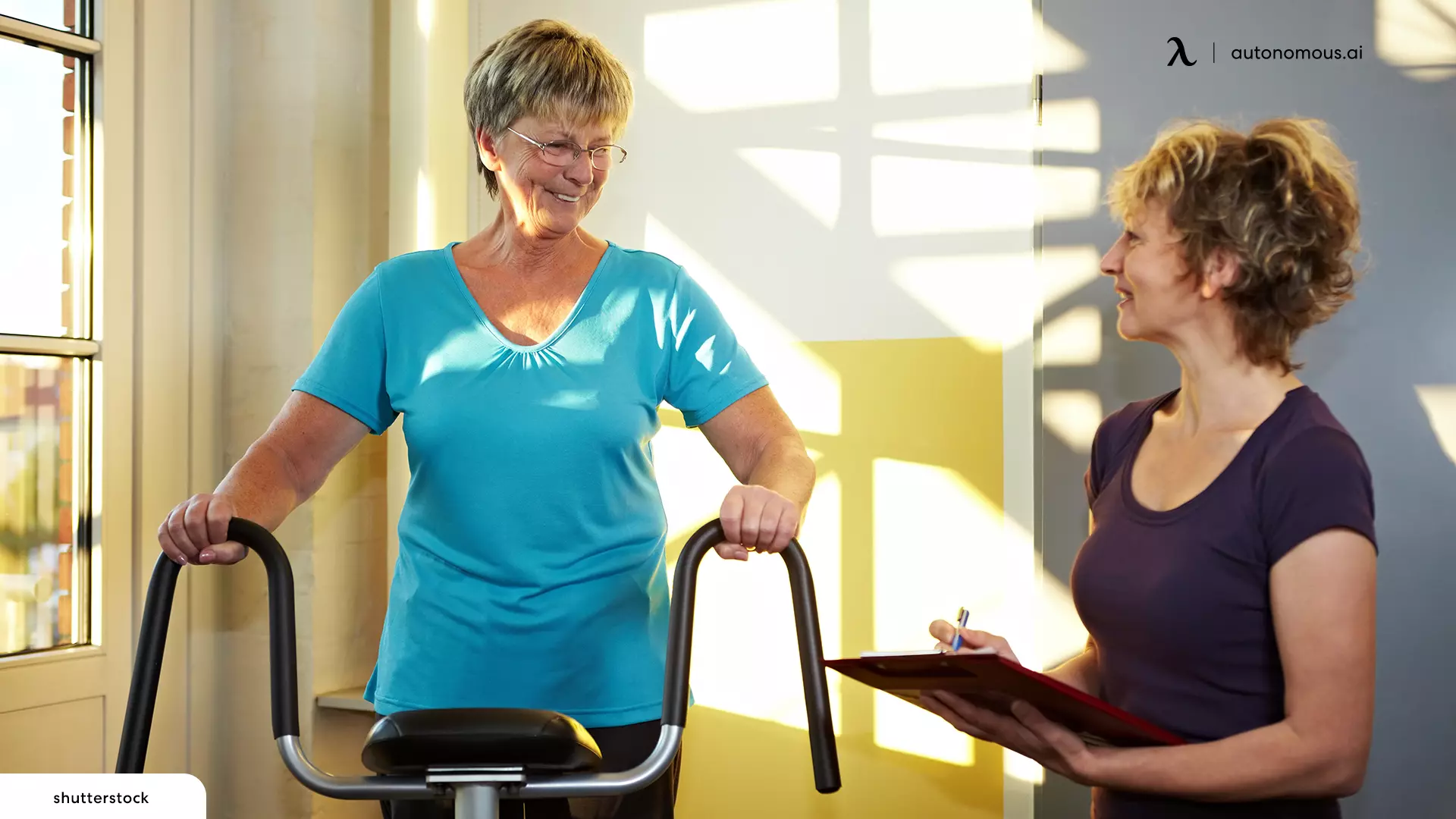
Unleashing the Potential: How to Use a Manual Treadmill for Exercise
To use a manual treadmill, you simply need to start walking or running on the belt. As you do so, the belt will start moving, and you will have to work harder to maintain your pace and speed. Also, to increase the intensity of the workout, you can walk or run faster or incline the belt, making it harder to move.
One of the key benefits of using a manual treadmill is that you completely control the workout. You can adjust the speed and intensity to suit your needs and goals, and you don't have to worry about the machine controlling your movement.
Moreover, manual treadmills are generally more affordable and require less maintenance than electric treadmills, making them a great option for those looking to create a home gym on a budget.

Exploring the Differences Between Motorized vs. Manual Treadmill
Here are some of the key differences between manual vs. electric treadmills:
Movement Powered By: User vs. Motor
One of the most obvious differences is the way the belt moves. On an electric treadmill, the belt is powered by a motor, while on a manual treadmill, the belt is powered by the user's movement.
That means that the speed and incline of the belt can be controlled automatically on a motorized treadmill. In contrast, on a manual treadmill, the user must manually adjust the angle and speed by adjusting the incline and their own pace.
Range of Motion: Limited vs. Free - Manual or Electric Treadmill
Another difference between manual vs. motorized treadmills is the range of motion. On an electric treadmill, the user is limited to the belt's range of motion, typically about 60 to 70 inches.
Furthermore, on a manual treadmill, the user can move their legs in a broader range of motion, allowing for a more natural and comfortable stride.
Features: Advanced vs. Basic
Motorized treadmills typically offer more advanced features, such as heart rate monitors, workout programs, and connectivity to fitness tracking apps.
On the other hand, manual treadmills are typically simpler and may only have basic features, such as a display showing speed and distance.
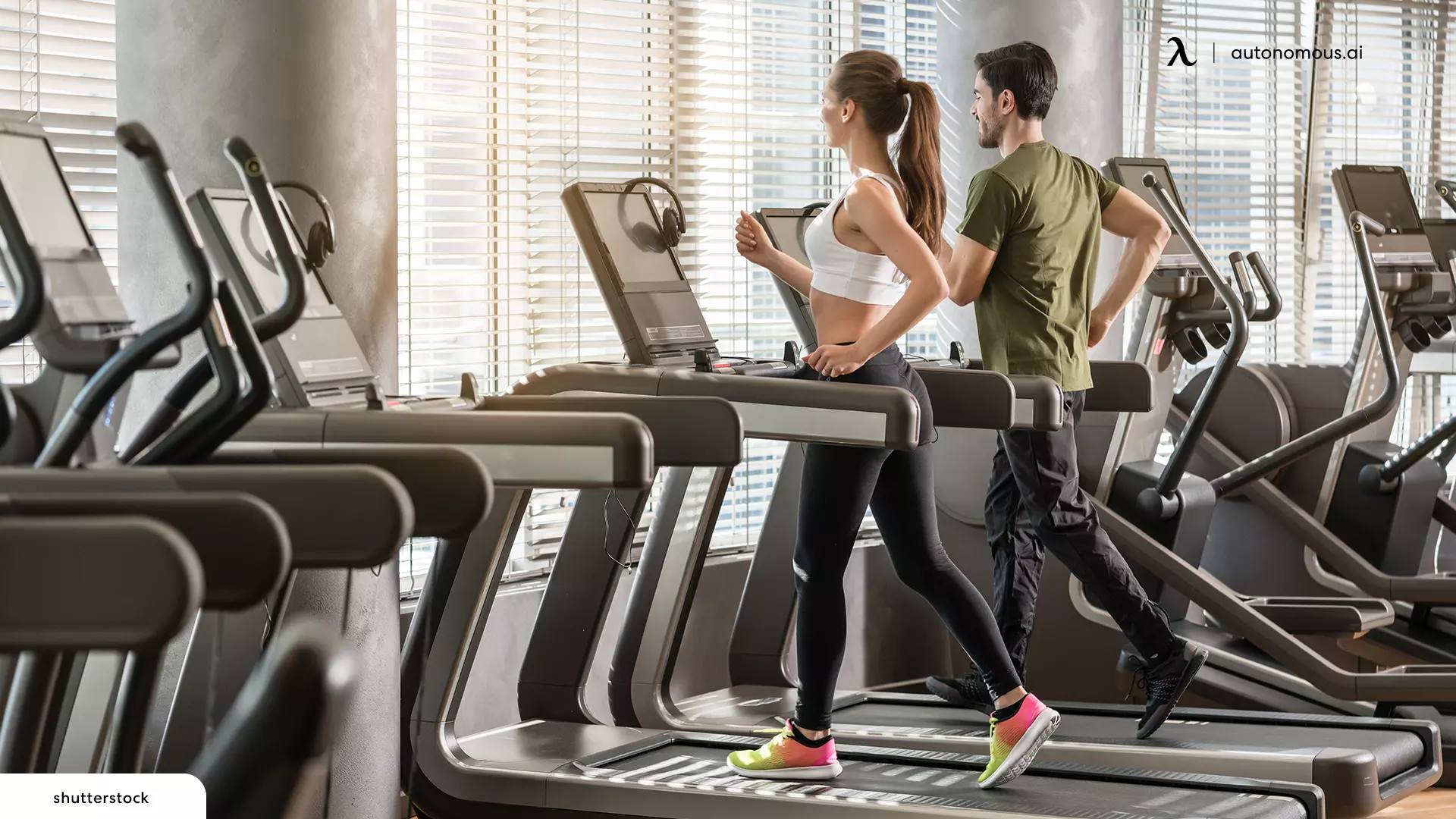
Cost: Expensive vs. Budget-Friendly
In terms of cost, electric treadmills tend to be more expensive than manual treadmills, with prices ranging from a few hundred to several thousand dollars.
Moreover, the cost of manual treadmills can be as low as a few hundred dollars, making them more cost-effective.
Space: Bulky vs. Compact
Finally, in terms of space, motorized treadmills can be quite bulky and require more space to store, while manual treadmills are often more compact and can be easily stored when not in use.
Overall, the choice between a manual vs. motorized treadmill comes down to personal preference, budget, and the type of workout desired.
Those looking for a more advanced workout experience with various features may prefer an electric treadmill, while those looking for a more basic workout experience at a lower cost may prefer a manual treadmill.
The Best Exercises for an Electric Treadmill
Electric treadmills have various features that make them ideal for multiple exercises. They are equipped with adjustable incline, speed, and pre-programmed workout routines. These features allow for a more diverse range of workouts, making them suitable for both novice and experienced exercisers.
- Cardiovascular exercise: With the ability to adjust speed and incline, electric treadmills are great for running, jogging, and sprinting exercises to improve cardiovascular health.
- Weight loss: The adjustable incline feature on this treadmill makes it ideal for calorie-burning exercises. A high-intensity workout on an electric treadmill can help burn more calories than a manual treadmill, making it a popular choice for weight loss.
- High-intensity interval training (HIIT): HIIT is a popular form of exercise that combines periods of intense exercise with periods of rest. Additionally, electric treadmills come with pre-programmed workout routines that suit each user's needs.
- Endurance training: Electric treadmills can be set to a specific speed and incline, making them ideal for endurance training. This advantage is particularly useful for athletes and individuals preparing for marathons or other endurance events.
Overall, electric treadmills offer a wider range of workout options compared to manual treadmills, making them ideal for individuals who are looking for a more versatile workout experience.

Get Moving: Ideal Exercises for a Manual Treadmill
Manual treadmills are ideal for people looking for a more low-impact, low-intensity workout. This treadmill is suitable for walking, jogging, and light running. Also, they can be used for interval training and hill climbs, as well as plyometric exercises like jumping jacks, jumping rope, and even burpees.
Because manual treadmills are powered by the user's movement, they offer a more natural feel and require more effort from the user. This makes them perfect for people who are just starting with an exercise routine or for those who are recovering from an injury.
Manual treadmills can be adjusted to increase resistance for those seeking a more intense workout. Moreover, this is achieved by inclining the treadmill deck or adding more weight to the flywheel. Users can also increase their speed to add more difficulty to their workout.
By doing this, manual treadmills can provide a challenging workout that will help build strength, endurance, and cardiovascular fitness.

Electric vs. Manual Treadmill: Pros and Cons
When choosing between a motorized vs. manual treadmill, it's essential to consider the pros and cons of each option.
Pros and Cons of Electric Treadmill
Discover the advantages and disadvantages of incorporating an electric treadmill into your fitness routine.
Pros
- Convenience: One of the electric treadmills' biggest advantages is their convenience. You can simply turn the machine on, select your preferred speed and incline, and start exercising.
- Versatility: Electric treadmills have various features that make them suitable for different exercises.
- Consistency: Unlike manual treadmills, electric treadmills provide a consistent speed and incline, which makes it easier to control your workout and maintain a constant pace.
- Safety: Electric treadmills come with safety features, such as emergency stop buttons, which provide peace of mind and added security while exercising.
Cons
- Cost: Electric treadmills are generally more expensive than manual treadmills, which can be a barrier for some people looking for a budget-friendly option.
- Maintenance: These treadmills require more maintenance and upkeep than manual treadmills, as they have more moving parts and electronic components.
- Power: Electric treadmills require an electrical outlet, which can limit where you can use them.
- Noise: Some electric treadmills can be pretty loud, which may be an issue for people who are sensitive to noise or live in an apartment with neighbors nearby.
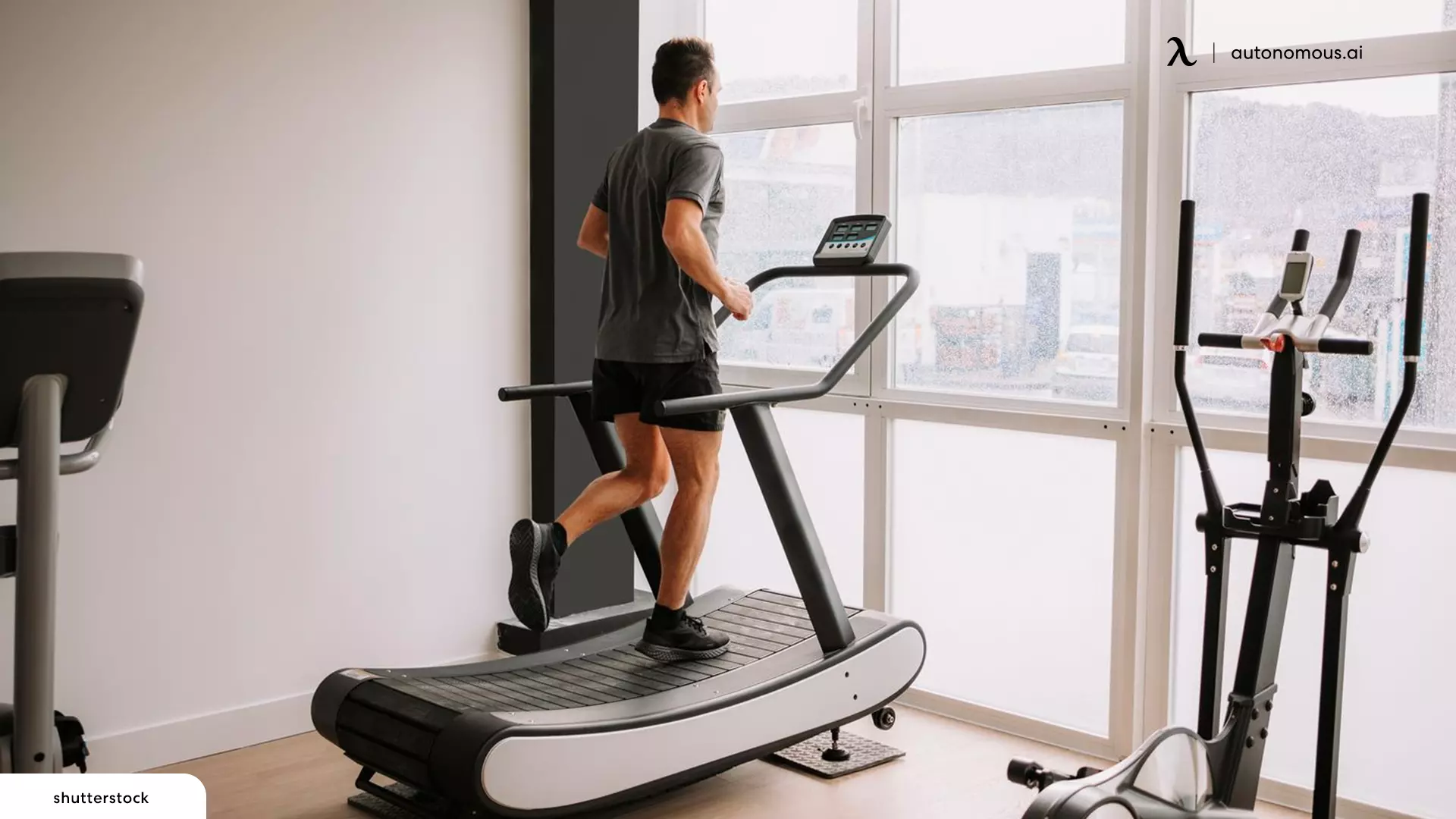
Pros and Cons of Manual Treadmill
Here are the advantages and disadvantages of manual treadmills:
Pros
- Cost-effective: Manual treadmills are generally more affordable than electric treadmills, making them a great choice for those on a budget.
- No power requirements: Since these treadmills don't require electricity, they can be used anywhere, whether it's in your home, office, or even outdoors.
- Quiet operation: They are virtually silent, making them ideal for use in shared spaces, such as apartments or offices.
- Environmentally friendly: By eliminating the need for electricity, manual treadmills are more environmentally friendly than electric treadmills.
- Low maintenance: With no electrical components, manual treadmills require little maintenance and can last for many years with proper care.
Cons
- Less adjustable speed: Manual treadmills typically have limited speed options, making it more difficult to customize your workout.
- Requires physical effort: Because these treadmills require the user to generate movement, they can be more physically demanding than electric treadmills.
- Inaccurate speed readings: The speed readings on manual treadmills can be less accurate than on electric treadmills, making it harder to track progress.
- Limited workout options: Manual treadmills can offer a limited range of workout options, making them less suitable for those who want to try different types of exercise.
- Lack of features: Unlike electric treadmills, manual treadmills often lack features, such as built-in heart rate monitors, workout programs, and incline options, making it more difficult to track progress and set goals.

Summary
Electric vs. manual treadmills are two different types of home gym equipment available in the market. Both have their own unique features and benefits.
Whether you choose a manual or electric treadmill, you must consider your fitness goals and personal preferences. Both types of treadmills have their advantages, so it's up to you to decide which is best.
Ultimately, choosing between an electric vs. manual treadmill is personal, and the right choice will depend on your fitness goals, lifestyle, and budget. With various options available, finding the perfect treadmill for your home gym has never been easier.
Therefore, whether you're looking for a 2-in-1 folding treadmill or a curved treadmill, there is sure to be a treadmill that fits your needs and budget.
Spread the word
.svg)


.webp)
.webp)




